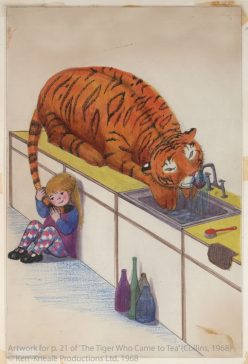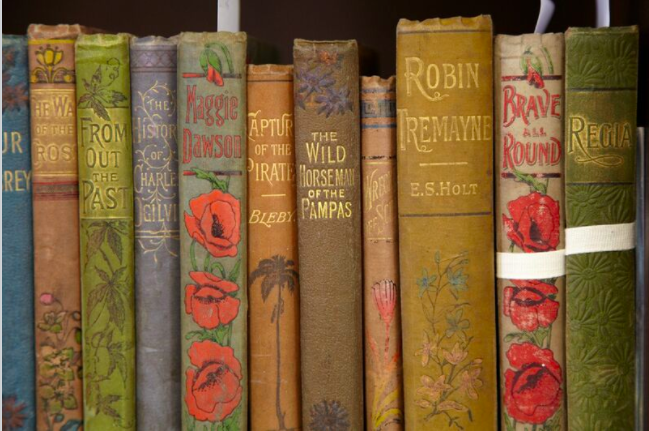Our second Children’s Literature Open Day for this academic year was held on February 8th 2017. It was a great chance to welcome visitors to Newcastle and to showcase the kind of work we do here at Newcastle. We were also lucky enough to welcome Costa Award-winner Frances Hardinge to Newcastle for a public event.
All about the Children’s Literature Unit
We kicked off with an introduction to the Children’s Literature Unit by Dr Lucy Pearson, who is just one of a great team of children’s literature scholars here at Newcastle. Professor Kimberley Reynolds (19th and 20th century children’s literature), Professor Matthew Grenby (18th century children’s literature), and Dr Pearson (modern and contemporary children’s literature) are at the heart of the Children’s Literature Unit, but they are joined by Creative Writing colleagues Ann Coburn and Zoe Cooper – both award-winning authors for children – and by a host of colleague whose work deals with children and childhood, including Professor Kate Chedgzoy (Renaissance childhoods), Dr Helen Freshwater (child performers and family theatre) and Dr Martin Dubois (Victorian nonsense rhyme and fantasy literature). This diverse team takes a whole range of approaches to children’s literature studies, but perhaps the most distinctive aspect of children’s literature at Newcastle is a common interest in historical approaches and book history. In different ways, CLU scholars are interested in how children’s books came to be and how they live in the world.
Alongside the staff who work in this area, there are of course our brilliant postgraduate students, who meet twice a month to share their work (and to create this blog!). Having a thriving group of scholars and students working on different aspects of children’s books means there is always someone to share your ideas with, a chance to learn something new, and a place to get a bit of moral support.
Studying at Newcastle
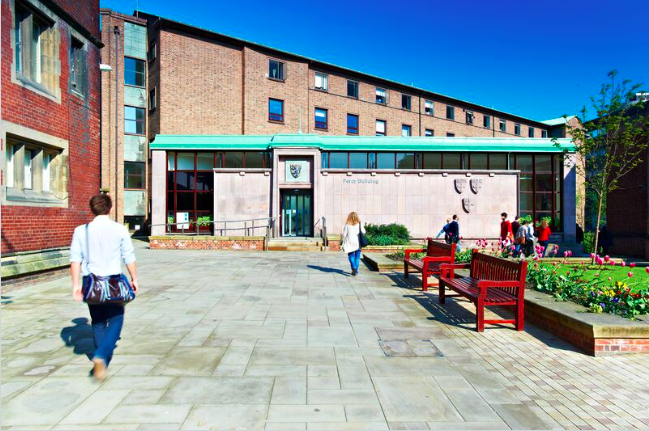
Two of our postgrads came along to share their experiences of Children’s Literature at Newcastle. Masters student Liam Owens spoke about the research he’s been doing on the MLitt in Children’s Literature. Liam says:
“Studying the MLitt is fantastic. It gives me the freedom to research the areas of children’s literature which interest me, and the structuring of the course means I’m able to write on as few or as many topics as I like. This term I’ve just completed a research assignment on the representation of the posthuman in the works of twice Carnegie winner, Patrick Ness. Now I’m in the middle of conducting research on digital story apps and arranging empirical research with a local primary school. Without the MLitt, I would never have been given the opportunity to research children’s literature in such diverse ways.”
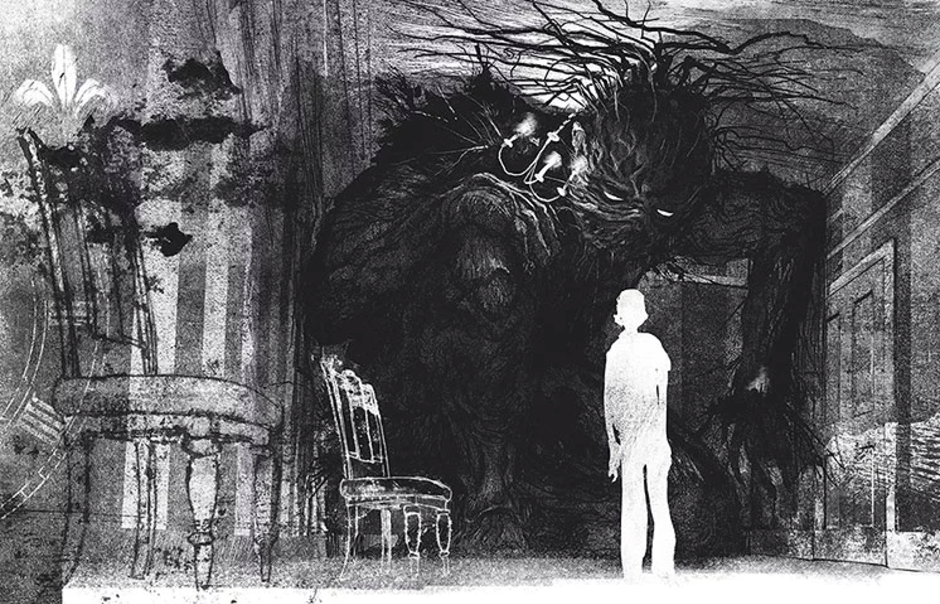
Lucy Stone spoke about her PhD research, which draws on the amazing archives at Seven Stories:
I was 13 and beginning to learn German when I first read Judith Kerr’s When Hitler Stole Pink Rabbit (1971). The story stuck with me over the years. It was at the University of Cambridge while I was undertaking an MPhil in Education that I learnt of Seven Stories here in Newcastle where Kerr donated, along with the manuscripts of her published picturebooks and novels, her childhood drawings, paintings and writings. I was struck by their colour, light and life, which appeared to be in contrast to the childhood of exile I understood Kerr to have led, despite the light and warmth infused in When Hitler Stole Pink Rabbit. Newcastle University works in close collaboration with Seven Stories and I was very fortunate to be awarded first a David Almond Fellowship and now a Research Excellence Academy Studentship to study the Collection and find out how and why Kerr’s juvenilia resounds with such joy and shows a humanity and remarkable talent.
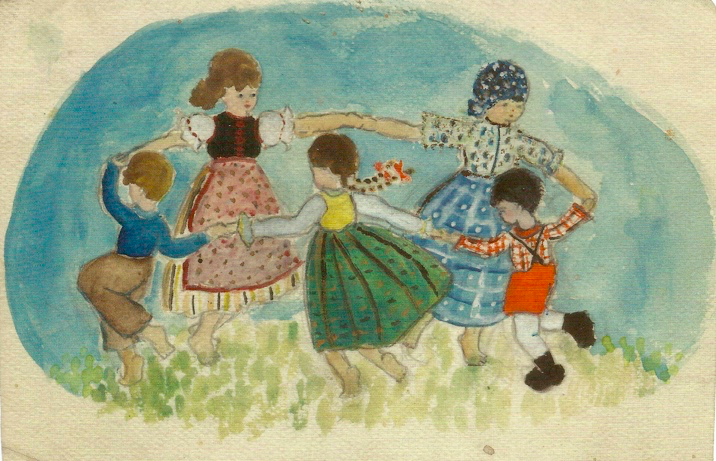
Seven Stories and the Robinson Library
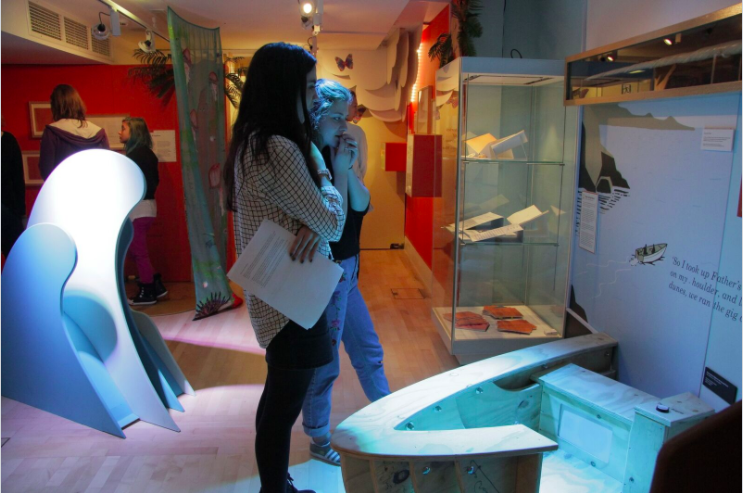
One of the most exciting aspects of working on children’s literature at Newcastle is our partnership with Seven Stories: the National Centre for Children’s Books. Archivist Kris McKie came along to share some details of the collection, which now represents over 250 authors and illustrators! You can explore the collection on the Seven Stories website, and if you’re interested in coming to work on archive material keep a look out for our annual David Almond Fellowships, which provide small bursaries to support work on the Seven Stories Collection.
The University’s Robinson Library also has fantastic children’s literature collections, including the Book Trust collection, and an extensive collection of modern and contemporary British children’s books.
Fantasy Worlds with Frances Hardinge
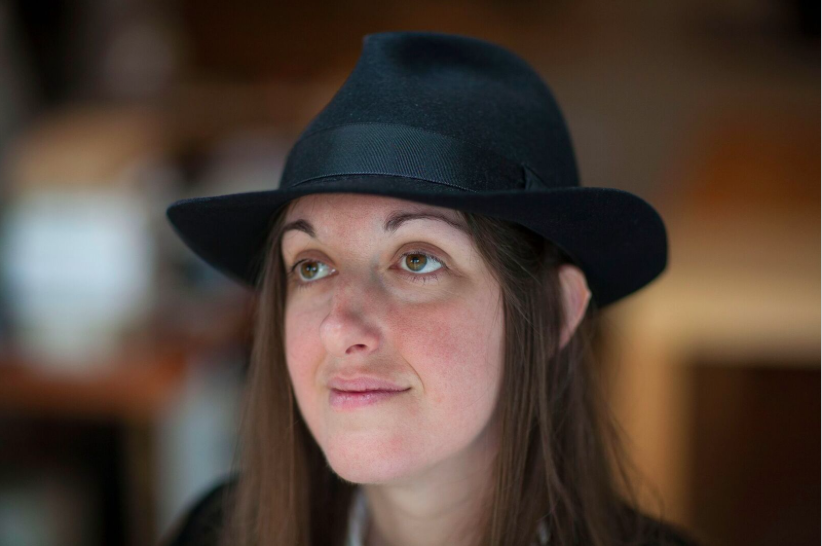
We were beyond thrilled to finish our Open Day with a fantastic event with Frances Hardinge! Frances’ books are favourites here in the Children’s Literature Unit and when our partners at Seven Stories suggested we might be able to invite her for a joint event we were very excited. The event was an in-conversation with PhD student Aishwarya Subramanian, whose research on British children’s fantasy after Empire has given her lots of thoughts on fantasy worlds and the way that authors play with them.
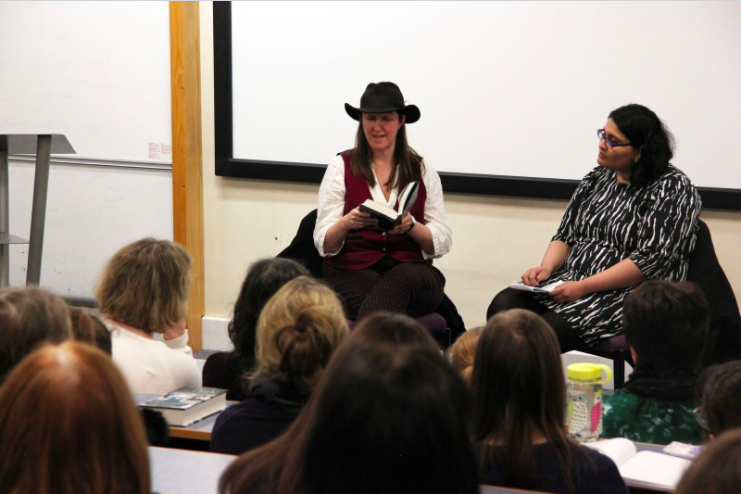
The discussion ranged from the role of the YA writer to the place of the fantasy author in our current political context. Frances spoke about her interest in times of transition: many of her books focus on historical moments of change (the impact of Darwinism in The Lie Tree; the aftermath of World War One in Cuckoo Song) or feature actual revolutions (Gullstruck Island and Twilight Robbery to name just two!). These ideas of transition seem especially relevant now, and Frances spoke about her desire to encourage readers to ask questions and the pleasure of writing for young people, who are naturally given to this.
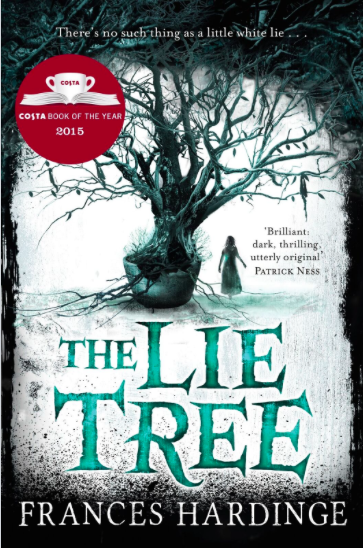
Frances also spoke about the flexibility of young readers, which affords her the opportunity to write books which don’t conform to any one genre. In merging genres, she also takes the opportunity to pull in lots of interesting ideas she’s picked up along the way – her approach to history was a great reminder of just how much fun research can be!
Perhaps the highlight of the evening was Frances’ spontaneous recitation of the whole of ‘Jabberwocky’, which was word perfect. The poem helped to instil a love of language in Frances at a young age – one which has gone on to enrich and enliven her books. We can’t wait to see which worlds she wanders into next, and whether she finds a good use for place names such as Clenchwarton (a small village in Norfolk).
Find out more
If you’re interested in studying children’s literature at Newcastle, find out more on our children’s literature pages or contact one of the Children’s Literature Unit. If you’d like to know about future public events, join our mailing list.
